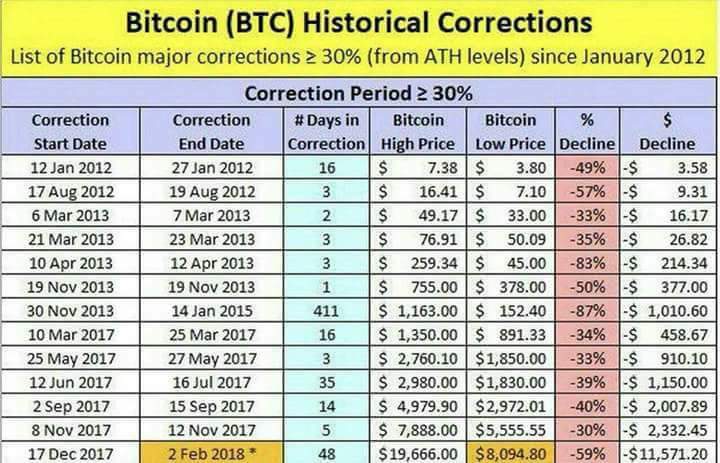
Some metrics are used time and time again to help technologists claim some sort of supremacy for their protocol. There are two that stand out: transactions per second and market capitalization; however, are these two metrics what matters when picking what cryptocurrencies to invest in?
The ability of cryptocurrencies to scale is constantly in question, and the best way to measure their ability to handle a higher capacity is by looking at how many transactions can be processed by a particular cryptocurrency.
The problem arises when it becomes clear this is a marketing gimmick more than an effective tool for evaluating the long-term potential of a coin.
When Bitcoin implemented SegWit, all the current problems with unconfirmed transactions disappeared and, for the time being, there are no more issues with it. Some more important questions for investors to ask is, what is the current demand on the system, is the protocol meeting those demands and what are the plans to increase the capacity in the future?
The other deceiving metric is market capitalization, as it often uses the total number of coins in existence rather than the total amount in circulation. This difference is key, as otherwise, a massive inflation of market capitalization can occur.
For example, this inflation may occur if only half of the coins are in circulation. The company would hold the other half of the coins, and the current trading price is applied to those all coins, regardless of the fact they have never been bought or sold.
A better way to evaluate the market capitalization of crypto-companies is by assessing the amount of real capital that has been invested into it. This would give an accurate picture of the aggregate interest the world has in that protocol, and takes away the loopy financial valuations that can occur when companies count undistributed coins in their market cap.
note: these are very simple tips and ideas about looking for the right metrics to value cryptocurrencies, however, I do believe these same ideas are extremely powerful to help preventing overvaluing coins.

Prices rarely matter for my long-term analysis, as I don’t expect growth to be linear. Volatility is something that I personally love and have came to terms with: it can takes us to the moon, or hell; but without it we won’t go anywhere. What matters the most are the small details, like the ones I’m mentioning below, which dictate most of everyone’s success and failures.
Time spent on the market
There’s a really nice article explaining why timing is so critical, but the gist of it is that if you miss, for example, 10 days of trading, during peaks/lows, you could lose potentially lose more than 50% of all potential profits. This is, missing the 10 best days can lower your expected returns in halve.
What we ought to do is to actually wait patiently for a good opportunity to either buy or sell; instead of worrying, take these opportunities to either average your losses, by re-buying bitcoin, or to actually dig-deeper and study some techniques that can help you improve your predictions accuracy.
TA is definitely a great way to try better understanding price movements and how you can leverage them for your own gains.
Dollar Averaging Cost
A fairly successful strategy among many traders and investors is to pick a day, every month, and just buy the same quantity. For instance, I try to split my entry-points in 4 or 5 smaller ones, near key resistance and support levels, and then I just wait until either the price moves in the opposite direction and I’m forced to re-assess, or the orders go in.
This is considered to be a safe strategy as you simply dilute probabilities by a longer time-frame.
Market Values
A key point in my analysis is looking at companies from an objective, third-person, perspective, comparing what I consider to be the fundamental values for the success of any cryptocurrency project:
- Technology -> it dictates user adoption. Understanding how bitcoin and other cryptocurrencies work under the hood is to me, the most important value. But only because I like technology and it’s easier to spend time around the subject. Pick something you like to do and you won’t work a day in life.
- Psychology -> it dictates market behavior. If you want a neat tool to understand when it’s a perfect time to sell, check google trends. People lookup bitcoin the most when prices are incredibly high. I would argue its our nature to buy when prices are high due to excessive FOMO and hype. That’s why it is so important to be a contrarian when it comes to market movement.
- Business -> it dictates investors strategy. Consider the following: if the shares-asset class is doing fine, how do you think the price of long-term assets, like gold or silver, will behave? Interest rates at zero make investors bullish on spending money on assets with huge returns, as making riskier gambles is cheaper due to money being cheaper to get. Don’t people say bitcoin is the new digital gold? What do you think it will happen when traditional markets enter a bear-run? In my eyes, cryptocurrency could be the answer.
- Philosophy -> it dictates market values. If you didn’t know, most technological problems are also philosophical ones; if you think of scalability, the hottest subject around cryptocurrency adoption, it becomes obvious the discussion is not whether you can scale bitcoin (or other cryptocurrencies), but how you’ll do it. Will you give up decentralization for efficiency?
I hope these tips help you in your endeavors to becoming a better investor and trader!
Don’t forget: we should only invest what we can afford to lose. Mistakes will be made and money will be lost, however, if you work hard on a balanced strategy, your long-terms results will most definitely improve!

Rome wasn’t built in a day.
If you really want to succeed in this market, you need to go all-in. No, do not put all your hard-earned cash into bitcoin, but do dive-deep into cryptocurrency: either by learning about technology, business, market behavior, TA, or any other field you might consider relevant, you’ll be adding value to the market because your gambles will be more accurate and you’ll likely bet on better projects or assets.
Markets are cyclical. If you lost money now you can always recover it on the next bull-run, which in my not-expert opinion is coming soon.
One of the obvious reasons are ETFs. If, in one hand, bitcoin futures gave institutional investors a chance to bet heavily against bitcoin and make double-wins, ETFs will have the exact opposite effect, one hopes.
My final piece of advice is for you to set reasonable targets in your head and don’t get too greedy. Be patient and learn as many different strategies as possible; with time and enough dumb decisions, knowledge and experience will come!
Disclaimer: this article isn’t financial advisement; it represents my personal opinion and should not be attributed to CCN. I have savings invested in cryptocurrency so take whatever I write with a grain of salt. Do not invest what you cannot afford to lose and always read as much as possible about a project before investing.
Get Exclusive Crypto Analysis by Professional Traders and Investors on Hacked.com. Sign up now and get the first month for free. Click here.





